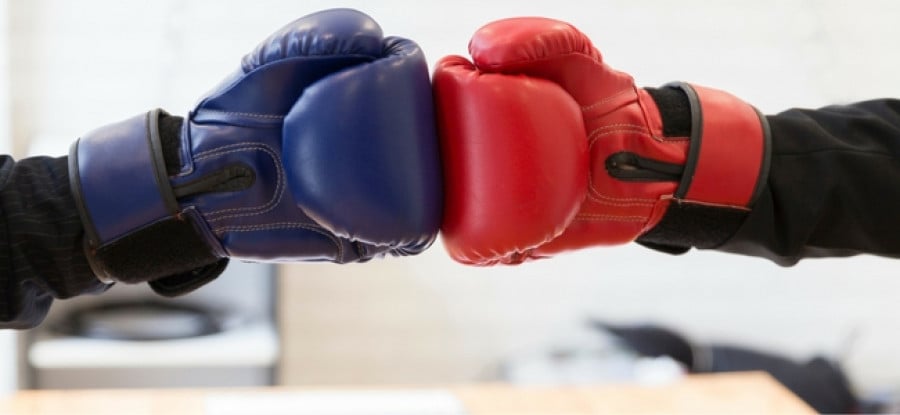The need for better dispute resolution systems in Indian sport and the Government’s new Guidelines

One significant problem in Indian sports today relates to dispute resolution, and specifically dispute resolution within National Sports Federation (NSFs). The types of dispute referred to in particular, are disputes and grievances arising out of selection procedure of athletes for representation at various national and international forums, disciplinary issues against the athletes, bans imposed due to age fraud, gender inequality, maintenance and submission of medical records, and issues regarding financial support.
The concept of sport being “legally autonomous” dictates that disputes are, so far as possible, resolved “internally”. Ideally this means that the dispute should be resolved within a suitable forum established by the relevant National Sports Federation (NSF). However, in India the NSFs have, by and large failed to establish satisfactory internal mechanisms and forums to address this issue. This problem is further compounded by their additional failure to incorporate an arbitration clause within their regulations entitling athletes final recourse to the Court of Arbitration for Sport (CAS). As a result, athletes are often left in an unenviable position (for reasons described below) of having to approach the national Courts should they wish to resolve their grievances.
The general failure of NSFs to provide adequate internal dispute resolution mechanisms was brought to the forefront and received national attention by two recent high-profile cases. The first concerned the female boxer Sarita Devi, which led Rajiv Dutta, a senior advocate, to file a Public Interest Litigation (PIL)1 (Rajiv Dutta vs. Union of India2). The PIL challenged the decision of International Boxing Association ("AIBA") which suspended Devi for refusing to accept a bronze medal at the Asian Games. Dutta argued that these federations should take note of the rules and regulations of CAS. The second case concerned former Olympic wrestler, Sushil Kumar3, who filed a writ petition against the arbitrary selection procedure adopted by the Wrestling Federation of India (“WFI”) for India’s representation at the 2016 Olympics, and made Ministry of Youth Affairs and Sports ("MYAS") a party to the dispute. Both cases are discussed below.
On June 17 2016, as a response to the case filed by Sushil Kumar, the MYAS issued a new set of guidelines titled: “Safeguarding the Interests of Sportspersons and Provision of Effective Grievance Redressal System in the Constitution of National Sports Federations” (Guidelines)4. The rather brief Guidelines direct all NSFs to ensure that they:
- Establish an effective, transparent and fair “Grievance Redressal System” (i.e. dispute resolution system) to safeguard the interests of sportspersons; and
- Include within their constitution the right for aggrieved sportspersons to appeal their case to CAS.
This article scrutinizes the Guidelines within the context of examining why it is so important for the NSFs to establish a robust internal dispute resolution mechanism. Specifically, it looks at:
- The current problems with dispute resolution faced by the Indian athletes;
- The inability of athletes to take their grievances to the CAS;
- Analysis of the new Guidelines and the wider push to improve dispute resolution;
- Conclusion and author’s thoughts.
THE CURRENT PROBLEMS WITH DISPUTE RESOLUTION FACED BY THE INDIAN ATHLETES
Prior to the publication of the Guidelines, the remedies available to sportspersons against most NSFs have been twofold:
- informally plead to their respective NSF to reconsider any decision; and/or
- file a suit in the Indian Courts to override such decision pronounced by the NSF.
In the author’s experience, both remedies have proven to be for all practical purposes, futile. NSFs usually decline to reconsider their decisions. And the courts have either taken too long to settle the dispute (e.g. in Amit Kumar Dhankar v. Union of India5, where the action became infructuous (fruitless) as the event in contention was already over), or refused to interfere with decisions of the NSF (e.g. in Sushil Kumar’s6 case)
The Delhi High Court (DHC) in Sushil Kumar observed:
“41. Keeping in view the aforesaid, this Court is of the view that a writ Court will not interfere in the exercise of discretion of the National Sports Federation and substitute its own judgment except where the discretion is shown to have been exercised in an arbitrary or capricious or perverse manner or contrary to settled principles or practices.”7
In other words, the Court contended that it would not interfere with the NSF’s decision unless the NSF has acted in “an arbitrary or capricious or perverse manner” while exercising its jurisdiction (similar to the position in the UK, see here8). Despite being mandated by the National Sports Development Code, 2011 (NSDC) most of India’s NSFs still do not have written rules, which makes it harder for the courts to determine what may or may not be termed as arbitrary, capricious or perverse. For example, WFI’s Olympic selection procedure, which was at the center of Sushil Kumar’s case, operates largely by tradition or precedents9. By not codifying their rules and regulations, it can be argued that NSFs can take advantage of the Court’s handicap in such cases.
The Guidelines clearly establish that it is the responsibility of the NSFs to incorporate into their constitution or bye-laws appropriate and coherent internal mechanisms to resolve all grievances. The Guidelines mandate all NSFs to create rules to address this. The author will analyse this direction after examining the second element addressed by the Guidelines: the requirement for NSFs to provide athletes with recourse to the CAS.
THE INABILITY OF ATHLETES TO TAKE THEIR GRIEVANCES TO THE CAS
To continue reading or watching login or register here
Already a member? Sign in
Get access to all of the expert analysis and commentary at LawInSport including articles, webinars, conference videos and podcast transcripts. Find out more here.
- Tags: AIBA Disciplinary Code | Boxing | Court of Arbitration for Sport (CAS) | Delhi High Court (DHC) | Dispute Resolution | Governance | India | International Boxing Association (AIBA) | Ministry of Youth Affairs and Sports | National Sports Development Code of India 2011 | Olympic | Paralympic | Regulation | Safeguarding the Interests of Sportspersons and Provision of Effective Grievance Redressal System in the Constitution of National Sports Federations | Wrestling | Wrestling Federation of India
Related Articles
- Indian boxer refuses bronze medal at Asian Games, OCA issues warning
- Devi’s Public Interest Litigation & the call for clearer dispute resolution guidelines in India
- Olympic selection disputes: Sushil Kumar v Wrestling Federation of India
- Fighting sports corruption in India: A review of the National Sports Ethics Commission Bill 2016
Written by
Aahna Mehrotra
Ms. Aahna Mehrotra is the Founder of AM Sports Law & Management Co. She was called to the Bar in May, 2011 and has gained considerable exposure through her experiences at different institutions worldwide. After completing her schooling from Mayo College Girls’ School, Aahna studied law at the ILS Law College, Pune. She then worked for a year, in India, before pursuing her Masters in Entertainment & Sports Law from the UCLA School of Law. During her year at UCLA, Aahna worked in the Intellectual Property & Anti-Piracy department at Warner Bros., which helped in polishing her skills in the American system. She further enhanced her skills by pursuing a certificate course in Sports Law held at the University of Cambridge and a second Master’s degree in Sports Law from ISDE, Madrid. She also has a certificate in Sports Law from the Sports Law and Policy Centre, in Ravello; a certificate in Intellectual Property laws from the London School of Economics; a certificate in Entertainment Law from the University of New Hampshire; and has attended a certificate course in Sports Law at the University of Geneva, which was held in collaboration with Duke University, U.S.A.
Purvasha Mansharamani
Purvasha Mansharamani is an Associate at the Sports Law department at TMT Law Practice.





